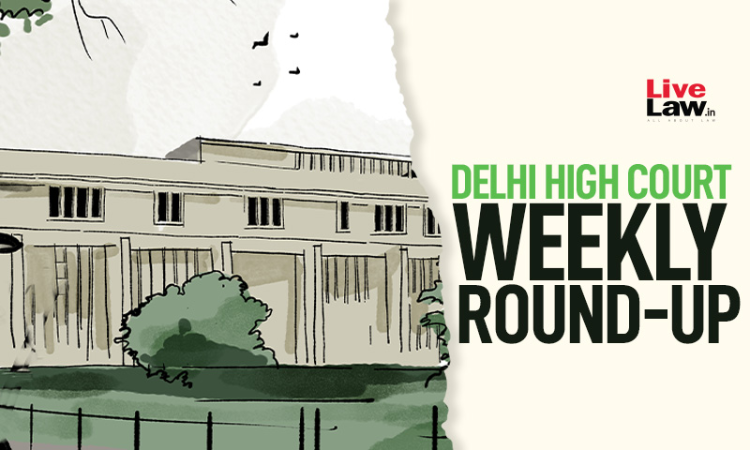Delhi High Court Weekly Round Up: August 29 To September 4, 2022
Nupur Thapliyal
4 Sept 2022 2:20 PM IST

Next Story
4 Sept 2022 2:20 PM IST
NOMINAL INDEXCitations 2022 LiveLaw (Del) 806 TO 2022 LiveLaw (Del) 838HANZLA IQBAL v. THE STATE & ANR. 2022 LiveLaw (Del) 806VISHV MOHAN v. DEPARTMENT OF PERSONNEL AND TRAINING AND ORS. 2022 LiveLaw (Del) 807RAJINDER SINGH BHATIA v. MANJU BHATIA 2022 LiveLaw (Del) 808SMT. SHIPALI SHARMA v. State & Anr. 2022 LiveLaw (Del) 809VED PRAKASH MANCHANDA v. DELHI URBAN SHELTER...
